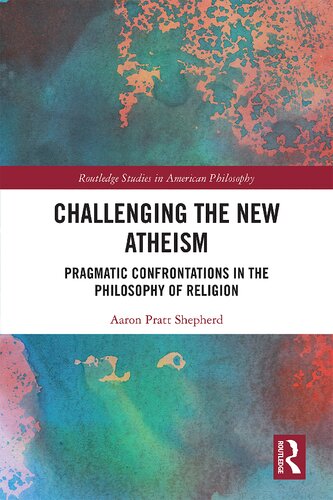

Most ebook files are in PDF format, so you can easily read them using various software such as Foxit Reader or directly on the Google Chrome browser.
Some ebook files are released by publishers in other formats such as .awz, .mobi, .epub, .fb2, etc. You may need to install specific software to read these formats on mobile/PC, such as Calibre.
Please read the tutorial at this link: https://ebookbell.com/faq
We offer FREE conversion to the popular formats you request; however, this may take some time. Therefore, right after payment, please email us, and we will try to provide the service as quickly as possible.
For some exceptional file formats or broken links (if any), please refrain from opening any disputes. Instead, email us first, and we will try to assist within a maximum of 6 hours.
EbookBell Team

0.0
0 reviewsThis book presents a pragmatic response to arguments against religion made by the New Atheism movement. The author argues that analytic and empirical philosophies of religion―the mainstream approaches in contemporary philosophy of religion―are methodologically unequipped to address the “Threefold Challenge” made by popular New Atheist thinkers such as Richard Dawkins, Sam Harris, Christopher Hitchens, and Daniel Dennett.
The book has three primary motivations. First, it provides an interpretation of the New Atheist movement that treats their claims as philosophical arguments and not just rhetorical exercises or demagoguery. Second, it assesses and responds to these claims by elaborating four distinct contemporary philosophical perspectives― analytic philosophy, empirical philosophy, continental philosophy, and pragmatism―as well as contextualizing these perspectives in the history of the philosophy of religion. Finally, the book offers a metaphilosophical critique, returning again and again to the question of method. In the end, the author settles upon a modified version of pragmatism that he concludes is best suited for articulating the terms and stakes of the God Debate.
Challenging the New Atheism will be of interest to scholars and students of American philosophy and philosophy of religion.